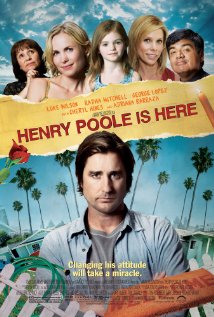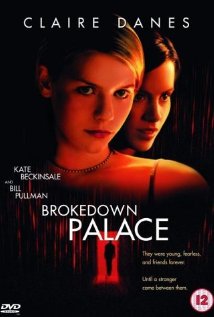Tags
catechesis, Catholic, cinema, Drama, effort, friend, friendship, Gambling, help, Love, loyalty, Matt Damon, ministry, movie, movie ministry, reconciliation, Redemption, Rounders, Sacrifice
Mike McDermott: You can’t lose what you don’t put in the middle. [pause] But you can’t win much either. (Source: IMDB.com)I don’t know what it is about Rounders – maybe it is the fact that I first saw it while I was spending a semester abroad in Rome, maybe I’m just a Matt Damon fan… or maybe I’m just a sucker for a good movie where the underdog comes out ahead, I don’t know… I really can’t tell you why I like Rounders… I just do.
We see Matt Damon’s character, Mike McDermott seems like he has a pretty good life; he’s a law student who’s apparently doing well, got a girlfriend who is also in law school, and things just appear to be going in the right direction. However, when his childhood friend, Lester “Worm” Murphey, played by Ed Norton, gets released from prison, his whole world get turned upside down. We learn that Mike is a former gambler and apparently used to get into a lot of trouble with Worm and that Worm took the fall, refusing to rat out Mike, a debt Mike still feels like he owes and Worm is all-too-willing to remind him of.
So, with all the gambling, language and nudity we see in Rounders, what can we learn? I know you’re expecting me to say “know when to hold them, and know when to fold ’em,” admit it!! =)
1. Loyalty is wonderful, but sometimes you do have to let the past be the past. So Mike feels like he owes Worm. It’s honorable that he respects that life he has could have been very different if Worm hadn’t covered for him. However, when you see how poorly Worm treats him and how manipulative Worm is, you’ll understand. We also have to consider that people change. We don’t get to see what the relationship was like when Mike and Worm were kids. The relationship may not always have been that bad, we may have to realize that part of Worm’s problem is the time he spent in the system and how he learned to cope. But no matter what, I’m not saying to turn on Worm immediately, but Mike probably should have set some limits much earlier in the game.
2. Listen to those with experience. Mike definitely has people who both serve as consultors and guardian angels. Joey Knish keeps alerting Mike to issues, so does Petra, plus Professor Petrovsky is like the wise old sage. Some of them Mike does a better job of listening to than others… But he finally wised up and realized that they weren’t trying to hold him back, only help. It’s hard to see that sometimes. We all want to think we’re in control – but, that certainly isn’t always the case. Sadly, even Jo has been down this road with Mike before, but he doesn’t listen to her and she finally gets fed up and leaves him. If Mike had listened to any of them, he could have been spared a lot of pain.
3. You can’t lose what you don’t put in the middle. But you can’t win much either. I like to apply this one to just about anything you really want to do in life – and maybe even the things you don’t. You don’t like math, you don’t invest yourself in it, you’re not going to get much out of it. No matter what you want, you have to put in the effort. The same goes for our faith. We have to put a little work in to get anything out of it. I get really frustrated with the “pew potatoes” that want to gripe about church, about not understanding the Mass, the Bible or the Catechism but won’t bother to try to remedy it and through self-study or learning opportunities at church. Put in the effort – you may not be rewarded in the way you think, but you will be rewarded.
4. Know your limits. Now, don’t take this to think I’m rescinding the previous paragraph or that there’s no point in dreaming, or working toward a goal. But, you do have to know when you really need to change the game plan. You do have to consider how your decisions will affect not just you, but your family and others who depend on you. You have to consider if the risk is worth the price.
5. Don’t be afraid to ask for help. When Mike finally realizes the depth of his trouble he does get help. It’s humbling, but sometimes we really have to do it. Asking for help takes many forms, it can be financial, educational, social, spiritual, etc. We all have to do it at some point – we aren’t perfect, as much as we may strive to be.
Gambling addiction… now, I didn’t mention anything about gambling addiction because I don’t think that’s what this movie is about. There may be some addiction, but I think the point of the movie is the bond between Worm and Mike, and showing how two boys raised in similar straits are set apart by one event that affects them the rest of their lives, and how they deal with that based on their experiences.
So, Rounders is rated R for good reason. I was serious about the gambling (duh), nudity (some scenes are set in a strip club, plus others that are just a way to show how bad things are), and the language is at times very vulgar. But I don’t think we’d get a true sense of the seriousness of the setting if the filmmaker had toned things down for a PG-13 rating. So don’t plan on watching it with youngsters around. But, it’s still an enjoyable movie and one with a few good lessons if you’re willing to give it a chance.




